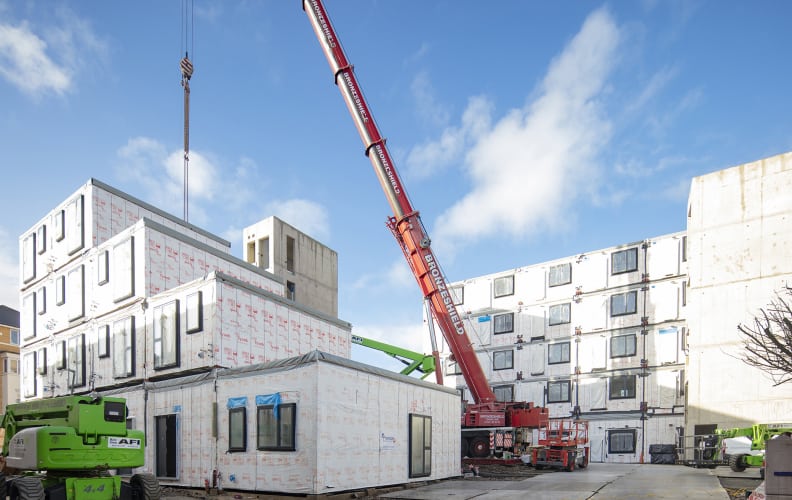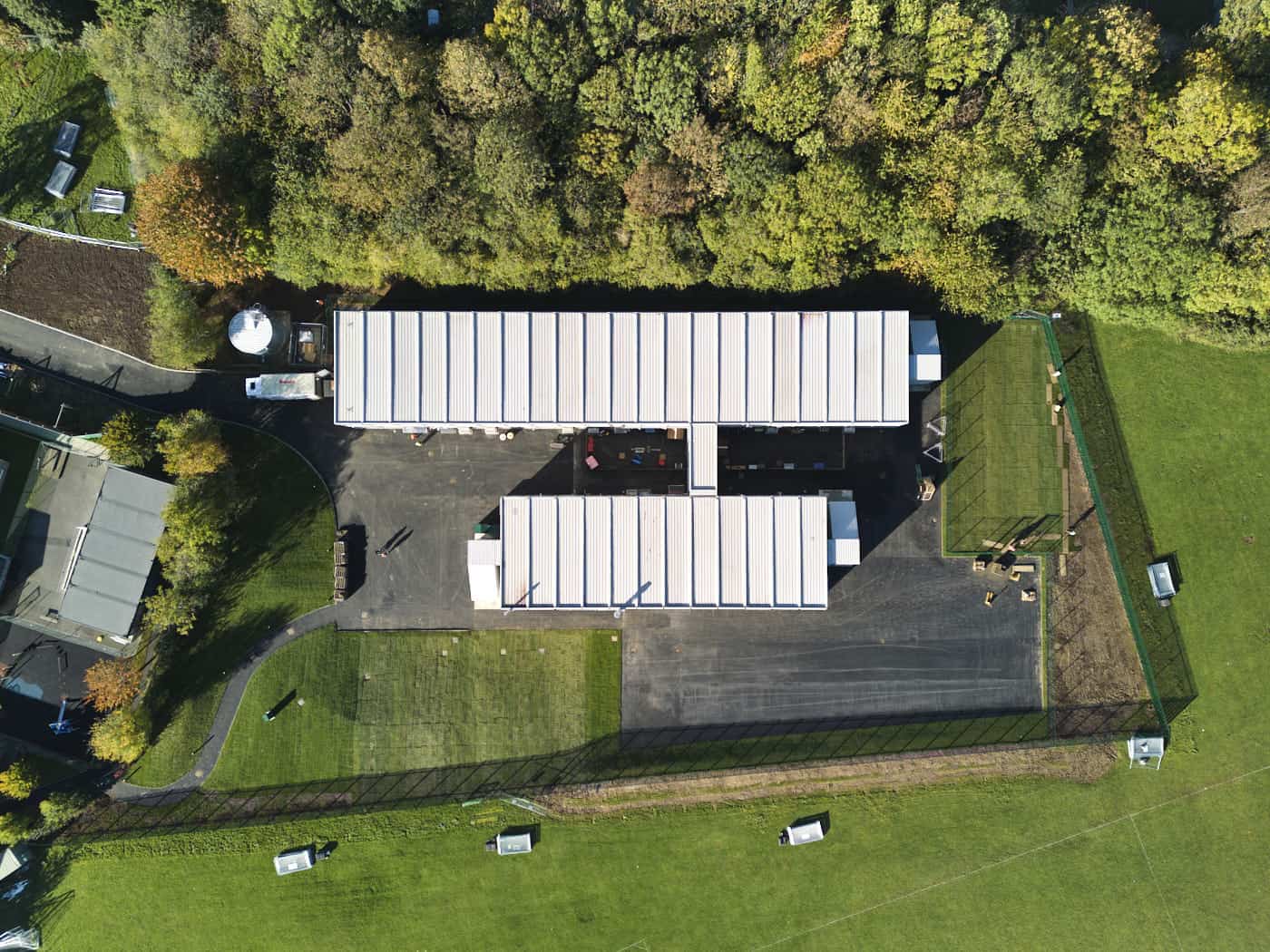In this interview with Nathalie Meunier, Business Development Director at Premier Modular, we look at some of the issues affecting the procurement of offsite construction and some advice to customers on what to consider and when.

What skills/awareness are most important among client-side project teams when choosing an offsite construction solution?
On too many projects, the offsite specialist is involved too late to optimise the benefits of the approach. This is a huge issue.
Clients and contractors need to engage with an offsite specialist early and prior to tendering so we can set the right parameters for design and ahead of the planning process.
Many architects just don’t know enough about offsite construction to produce drawings that work for manufacturing. There are probably only 4-5 architects in each sector with sufficient knowledge of volumetric systems to do this well.
It is important that cost consultants appreciate when comparing tenders that costs for offsite construction are presented differently to in-situ construction, particularly if they don’t usually work on offsite schemes. This can be a barrier to successful procurement.
We would always advocate sharing information prior to tendering. This is not about trying to gain commercial advantage but simply results in more accurate pricing.
What are there any issues that are sometimes not given consideration by client project teams on modular projects?
We regularly talk to clients who are keen to pursue an offsite solution, but their architects and cost consultants can be resistant and put up barriers. Preconceptions abound!
‘Offsite is too new and not proven’. The term ‘Modern Methods of Construction’ does imply modular construction is a new method of building – but we have been manufacturing buildings for more than 60 years and steel-framed buildings have been in use for much longer than that. This is not new technology and there have been tremendous advances in the last 15 years.
‘There is no capacity’. But the reality is I have never worked for any manufacturer who is at full capacity all of the time!
It is critical that client project teams engage with us from the earliest stage, in order to achieve the most efficient and cost-effective building solution.
Government continues to advise on a presumption for offsite but this is very often not the case, and many projects start without offsite being at the forefront. And it is important the client team understands why offsite is being suggested as it is not right for every project.
For a really successful scheme, we need to marry the highest standards of design with the efficiency of offsite manufacturing. Or create hybrid solutions comprising both offsite and in-situ construction methods.
What RIBA stage do clients typically need to start thinking about a modular solution to optimise the benefits?
RIBA Stage 2 is the best time. Engagement with an offsite specialist at this stage will be more efficient and more cost effective because you can maximise fitout offsite. That will reduce work on site – an important issue for construction projects on school, hospital, and city centre sites, for example. And we then do not have to re-design the building to suit offsite construction.
At what stage is it too late to use offsite construction without incurring significant cost or redesign?
Modular can be used at later stages but designs will need to be extensively reworked to fit a manufacturer’s module sizes which adds to cost – or multiple module sizes will be needed, which removes the benefit of standardisation and is therefore far less cost efficient.
It really isn’t ideal to take a design for a traditionally-built building which has planning and try to make it fit an offsite building system.
Engagement too late with the offsite manufacturer is likely to result in design clashes, for example between M&E services and structural steelwork. These issues would typically have to be rectified on site, incurring cost, increasing disruption, and removing the programme benefits. Designing for the offsite system from the outset avoids this.
Is there an example of a successful project where the client project team engaged early?
Premier Modular was awarded a £9.8m contract for Ashford and St Peter’s Hospitals NHS Foundation Trust to build a 62-bed Priority Assessment Unit at St Peter’s Hospital in Chertsey.
This project was procured using a two-stage tender process via a modular framework which reduced the time and cost of procurement.
The client developed a loose brief and timeframe, and appointed Premier as preferred contractor to develop the scheme and the design prior to the second tender stage.
This worked very well and allowed the Trust to maximise offsite fitout and radically reduce disruption – a key issue when extending hospital buildings.
We would advise clients to engage with an offsite specialist who they are confident could deliver their project and develop the design with them from the outset. That way you can optimise the benefits of factory production, standardisation, and speed of construction.
Do you recommend any skills or awareness training for client-side project teams if they are not familiar with offsite construction?
Use the expertise of the offsite specialist. Visit the factory, attend workshops and visit completed projects. And ask questions! This applies to the client, main contractor if there is one, cost consultants and architects.
Collaborate with the offsite specialist at every level. Recognise that offsite solutions are different to in-situ construction but with an open and transparent approach and working as a genuine partnership, the benefits to the client are enormous.











